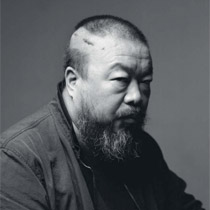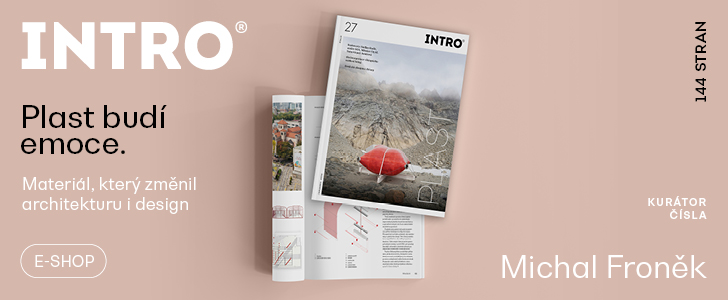
The exhibition Aj Wej-wej will kick off the celebrations of the 220th anniversary of the establishment of the NG
 |
This fall, the artist is expected to visit the site where the work will be created, namely the Great Hall of the Veletržní Palace.
In addition to the exhibition of the Chinese artist, the anniversary will be highlighted by a showcase drawing attention to the patronage and donations that supported the institution in its early days. Next year, NG will also open an exhibition of painter Henri Rousseau. This will take place in the Kinský Palace and will usher in a new phase for it. The palace, although located in the city center, is one of the least visited sites of the NG. Fajt aims to turn it into a "showcase" for the entire gallery.
Fajt has been preparing the Ai Weiwei exhibition for many months. According to him, by organizing it, NG demonstrates the openness of the artistic environment, which should not be influenced by political interests.
Ai Weiwei is a critic of human rights violations in China. In 2011, he was arrested and spent 81 days in prison, but he was never formally charged and was not convicted. In connection with his arrest, authorities confiscated his passport. At that time, he was fined 15 million yuan (approximately 59.3 million CZK) for alleged tax evasion. Even during house arrest, his works appeared in prestigious galleries around the world.
Last week, Ai Weiwei received his passport back. He quickly obtained a German visa and traveled to the country immediately. Initially, British authorities denied him a six-month visa, claiming that he had concealed his conviction for a crime. However, Ai Weiwei has never been officially convicted. The next day, Britain reversed its decision, and officials apologized to the artist.
Ai Weiwei's installations are exhibited worldwide, with a major showcase set to begin at the Royal Academy of Arts in London in September. It will feature, among other things, an installation commemorating the earthquake in China's Sichuan province, where around 80,000 people died in 2008. Ai Weiwei criticized the government for substandard construction at the time. The material for his new composition was twisted steel rods from buildings damaged by the quake.
The Zodiac was created in 2010 based on sculptures designed by two European Jesuits for the court of Emperor Qianlong of the Qing dynasty in the 18th century. The originals were water clocks at a fountain in the Old Summer Palace in Beijing but were looted by French and British soldiers in 1860. In Prague, the three-meter statues forming the Zodiac will be exhibited after several stops in Europe and the USA. A smaller version of the set, the gilded 12 heads, sold at a new auction record for $4.3 million (almost 104 million CZK) at a Philips auction in London in February.
The English translation is powered by AI tool. Switch to Czech to view the original text source.
Related articles
0
06.02.2016 | Aj Wej-wej wrapped the Zodiac in foil to draw attention to refugees
0
01.02.2016 | Before the Veletržní Palace stand the sculptures of the famous artist Ai Weiwei
0
13.10.2011 | Chinese dissident Ai Weiwei has been chosen as the artistic personality of the year
0
23.07.2011 | Exhibition Ai Weiwei at Kunsthaus Bregenz
0
06.05.2011 | In New York, works by the imprisoned Chinese artist are on display
0
13.01.2011 | In Shanghai, the studio of Chinese artist Ai Weiwei was demolished
3
07.11.2010 | Sunflower seeds in the London gallery Tate Modern by Ai Wei Wei
0
11.08.2007 | The architect of the Beijing Olympic Stadium sharply criticized the Chinese regime









